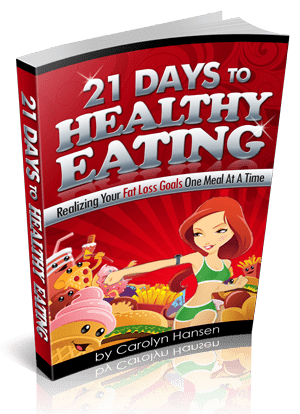A Healthy Diet
When it comes to trying to eat a healthier diet, many of us focus on subtracting the “bad” foods from our diet. We cut out sugar, fat, gluten, grains and processed foods, thinking that this will automatically lead to weight loss and improved health.
But what if we told you there’s a better way? Instead of subtracting the “bad” foods, try adding the “good” foods to your diet.
Let’s talk about how to build a healthier diet by adding nutrient-dense foods, rather than subtracting the less healthy options.
Eating a diet defined by what it excludes can be dangerous and result in deficiencies in essential nutrients.
In addition to causing various health issues, nutrient deficiencies can lead to increased hunger. When our bodies lack essential nutrients, they signal the need for more food to address these deficiencies. This can make it significantly harder to maintain the proper caloric balance required to prevent unwanted weight gain or achieve the caloric deficit necessary for weight loss.
Focus on additon not subtraction:
One of the key benefits of focusing on addition rather than subtraction is that it promotes a more positive and sustainable relationship with food. When we concentrate on adding nutritious foods, we are more likely to enjoy our meals and feel satisfied, rather than feeling deprived. This approach also encourages diversity in our diet, which can lead to a broader intake of essential nutrients and a more balanced diet overall. By embracing a mindset of abundance, we can reduce the psychological stress and negative emotions often associated with restrictive dieting.
Moreover, incorporating a variety of nutrient-dense foods can have a profound impact on our overall health and well-being. For example, adding more colorful fruits and vegetables to our diet can enhance our intake of phytonutrients, which are known to support immune function and reduce inflammation. Whole grains and lean proteins can provide sustained energy and support muscle health, while healthy fats are crucial for brain function and cardiovascular health. By making small, manageable changes to our diet, we can create lasting habits that not only support weight management but also improve our overall quality of life.
So, where to start?
Tip 1: Add More Fruits and Vegetables
Fruits and vegetables are packed with essential vitamins, minerals, and antioxidants that are essential for good health. They’re also low in calories and high in fiber, which makes them great for weight management. Try adding a serving of fruit or vegetables to every meal, whether it’s a banana with your breakfast, a salad with your lunch, or roasted vegetables with your dinner.
Tip 2: Add More Whole Grains
Whole grains, such as quinoa, brown rice, and whole wheat bread, are a great source of fiber, vitamins, and minerals. They also help to keep you feeling full longer and can help regulate blood sugar levels. Try swapping out refined grains, such as white bread, for whole grains.
Tip 3: Add More Lean Protein
Protein is essential for maintaining and building muscle, and it also helps to keep you feeling full and satisfied. Add lean protein to your diet by eating more chicken, fish, and beans.
Tip 4: Add More Healthy Fats
Healthy fats, such as avocados, nuts, and olive oil, are essential for good health. They help to keep your heart healthy, improve brain function, and keep your skin and hair looking great. Swap out saturated fats, such as butter and cream, for unsaturated fats.
Tip 5: Add More Herbs and Spices
Herbs and spices are not only delicious, but they’re also packed with antioxidants and anti-inflammatory compounds that can help to improve health. Try adding herbs and spices, such as turmeric, ginger, and basil, to your meals for extra flavor and health benefits.
By focusing on adding in a wider variety of more nutrient dense foods, our bodies will function better, risk of many diseases decreases, and we tend to be better satiated and less prone to overeating. Eating more of the foods our bodies need tends to push out the less essential foods from our diets. In other words, adding in the healthiest foods first, we’ll naturally subtract the less healthy foods with less effort.
Most diets can be a source of frustration for a lot of people. They often involve strict meal plans, unrealistic expectations, and a lack of long-term results, leaving individuals feeling defeated and overwhelmed. It’s no wonder that many are searching for a sustainable approach to weight loss, one that focuses on breaking bad habits and setting the foundation for lasting change.
The 21-Day Diet Reset is designed to do just that, offering an opportunity to reset your mindset and eating habits, while setting you on the path to achieving your weight loss goals.
You can read more about it here: 21 Days To Healthy Eating
If you are looking for more delicious, healthy, no bake desserts and treats to help you reach your health, wellness and fitness goals, you will love my collection here: Blended Bites


